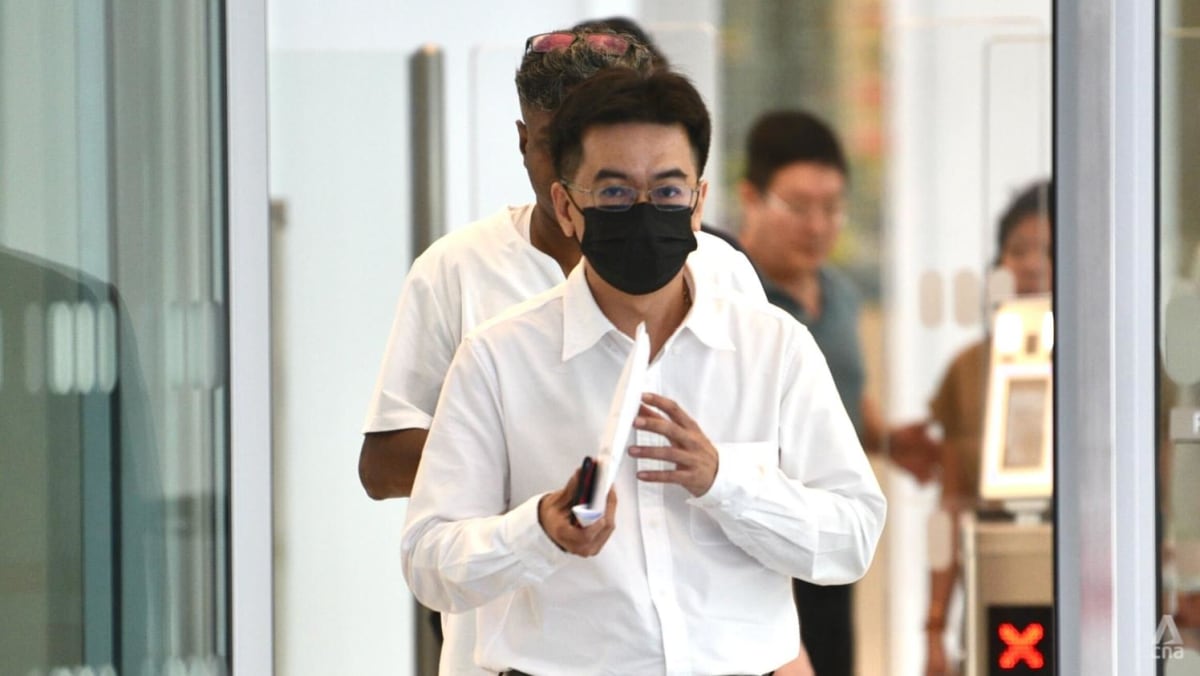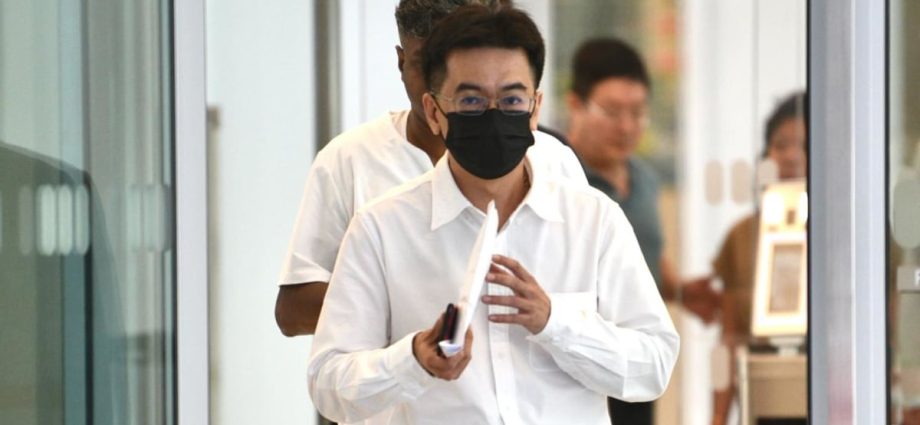
HELPED FRIEND’S COMPANY ON AD HOC BASIS
In their trial closing submissions, the prosecution said Liang provided false information about his employment history when applying for a job at SingPost in 2013.
This induced SingPost into believing Liang was formally employed, and then paying him S$8,000 in excess salary upon hiring him at SingPost.
According to a set of documents containing facts agreed on by both the prosecution and the defence, a recruiter submitted Liang’s curriculum vitae (CV) to SingPost for the position of VP, Project Execution.
In his CV, Liang said he had been employed as head of project management at GSM Holdings since August 2012. He claimed that his salary was S$12,500 with another S$2,000 in fixed transport allowance.
However, GSM Holdings was run by Liang’s friend Tan Yew Seng, also known as Gary Tan. Liang was not formally employed by GSM and was never a director there.
Instead, he had helped Mr Tan on an ad hoc basis – primarily with a factory that GSM was building in Senoko Loop, as Mr Tan was unfamiliar with building permits.
Mr Tan had made at least one verbal offer to pay Liang, but the agreement was never formalised and there was no contract of employment, any salary given, nor any Central Provident Fund contributions provided to Liang.
A key fact disputed during the trial was whether Liang accepted Mr Tan’s offer to pay him. The prosecution argued that he did not, while Liang’s lawyers argued the opposite.
Liang also argued that he “did not intentionally provide false information to SingPost regarding his employment history at GSM, and did not have dishonest or fraudulent intent to induce SingPost to employ him”.
The prosecution said Liang had, in fact, expressly declined to accept a salary from GSM, and was “taking a break from formal employment” while helping GSM “with some discreet matters on a pro bono basis”.
During the trial, it emerged that Mr Tan had no recollection of Liang’s involvement in any projects at GSM other than the Senoko Loop factory.
When questioned on the stand, Liang accepted he had not received remuneration from GSM. He also claimed that an employment history document he had submitted to SingPost was “not done by me” and was a “SingPost document”.
The prosecution said that could not possibly be true, given that the document contained personal information like his family members’ occupations and his criminal history.
“We submit that the accused’s evidence on this point is so implausible that it adversely affects his credibility,” said Deputy Public Prosecutors David Menon and Sapna Jhangiani.
TRIED TO OBTAIN BRIBE THROUGH “TACTICS”
As for the corruption charge, the prosecution argued that Liang attempted to obtain a S$1 million bribe “through a combination of deception, manipulation and pressure tactics”.
Liang was tasked with overseeing the SingPost Centre project in 2015, which redeveloped the retail portion of the centre to increase rental yield by increasing available retail space and modernising the infrastructure.
On Mar 2, 2015, SingPost invited contractors to submit tenders for the project.
Liang then learnt that Bintai Kindenko was hoping to secure several subcontracts for the project. Bintai was the proposed subcontractor for Shimizu Corporation, one of the main contractors which submitted a tender offer for the SingPost project.
Bintai Kindenko was included in Shimizu’s list of specialist subcontractors to carry out air-conditioning and mechanical ventilation installation, electrical installation and security system works.
Both the prosecution and defence agreed that Liang and Mr Wong discussed a bribe, but disputed whether Liang solicited it or Mr Wong offered it.
Liang was accused of attempting to obtain the bribe from Mr Wong in exchange for recommending Bintai as a preferred subcontractor.
During the trial, prosecutors submitted text messages to show that Liang initiated bribe discussions.
They argued that an “unprompted” message from Liang, where he asked Mr Wong if he would get offended if Shimizu was told to look for an alternative subcontractor, showed he was trying to “create an obstacle” between Bintai and securing the subcontract.
Liang later reiterated his “initial veiled threat” that Bintai had fallen out of favour, said the prosecution.
On May 25, 2015, the pair met at a coffee shop near Liang’s home. Mr Wong left the meeting with the impression that he needed to arrange for Liang to be paid a bribe, the prosecution added.
The pair met a few more times over the next month and exchanged more text messages, which prosecutors said showed Liang “laying the groundwork to solicit a bribe” from Mr Wong.
The contract for the SingPost Centre project was later awarded to Shimizu, and the subcontract for air-conditioning and mechanical ventilation installation was given to another company, D-Team Engineering, instead.
The prosecution agreed that Liang clearly believed he could obtain a bribe from Bintai, according to his testimony in court.
Prosecutors also pointed to “substantial evidence” that Bintai was excluded from Shimizu’s tender bid as a direct result of Liang’s comments at a post-tender interview. A Shimuzu representative confirmed that he understood that, if he did not comply with Liang’s instructions, Shimizu “might lose the tender”.
“It is undisputed that the accused knew he had the authority to exclude subcontractors without approval from his senior management, if there were valid reasons for this rejection,” they added.
“This largely unchecked authority over the subcontractor selection process vested him with significant influence over the fates of said subcontractors.”
For corruption, Liang could have been jailed up to five years, fined up to S$100,000, or both. For cheating, he could have been jailed up to 10 years and fined.
He was defended by lawyers Eugene Thuraisingam, Johannes Hadi and Hilary Low.

